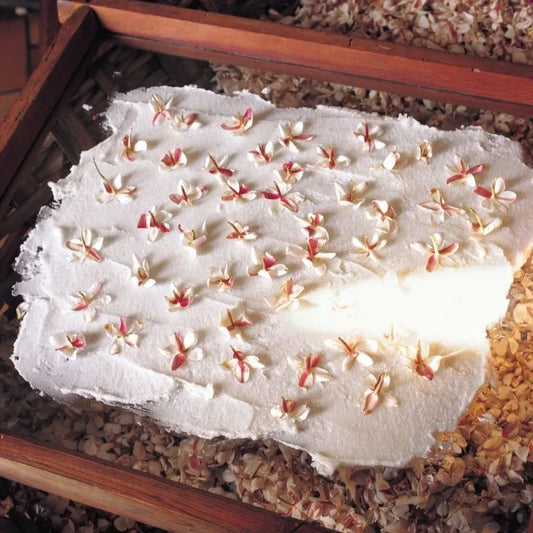Most commercially made skin care creams, lotions, ointments, and toners do not contain essential oils. Selected products from a few brands—Kiehl’s, Annmarie, and Honest Beauty among them—do contain essential oils (specifically lavender or rose), while a number of other organic brands use the less costly leaf extracts from various plants instead of the parabens, phthalates, and other chemical compounds that appear in most mass-produced skin products.
Next to aromatherapy, skin care is one of the most popular uses of essential oils, and there is considerable evidence that specific oils have a positive effect on various kinds of skin. They must not be applied directly to skin without significant dilution in an unscented lotion or cream or in a carrier oil such as coconut, apricot kernel, or avocado oil.
Some essential oils can actually harm skin, even when mixed in a lotion or carrier oil. Citrus oils are photosensitizing, which means that they are activated by sunlight and can cause damaging sunburn. Avoid applying lemon, lime, orange, tangerine, bergamot, grapefruit, or mandarin essential oils on your skin in any form. Mint oils including balm, pennyroyal, peppermint, spearmint, and wintergreen essential oils can be irritating to skin, creating additional inflammation.
Making your own skin cream or lotion is not as tricky as you may think. Blend a quarter of a cup of jojoba oil, two tablespoons of coconut oil, two tablespoons of beeswax, and a tablespoon of shea butter to create the base, and heat this in a one-quart saucepan over very low heat, or use a double boiler. When all the ingredients have melted together, add a few drops of the essential oil you have chosen for your skin type (more on this in a moment), and mix well. Pour this into a glass or metal jar, and store in a cool, dark place. It is advisable to try a skin test before you apply this to your face: rub a little of the lotion into the skin on the inside of your elbow, and wait 24 hours to see if your skin reacts. If you do not see redness or a rash develop, you can begin using your homemade lotion on your face and body. (You can also purchase an organic, unscented lotion from a natural foods store and add the essential oils you have selected.)
People with dry skin may add a few drops of lavender, chamomile, or sandalwood essential oils to this base to add some benefits while providing the pleasure of a naturally scented lotion. Palmarosa, rosewood, and carrot seed essential oils are also credited with a positive impact on dry skin.
If oily skin is your issue, clary sage, rosemary, geranium, neroli, and frankincense essential oils help balance the skin’s alkaline levels. Research has shown that rosemary is particularly useful for reducing inflammation, such as the redness that can come with sunburn, contact dermatitis, or rosacea.
For people with sensitive skin or those with eczema or other chronic skin maladies, lavender and sandalwood are particularly soothing. Avoid oils that are very acidic, like lemon and other citrus oils as well as lemongrass.
Tea tree oil has been proven repeatedly through scientific research to be very effective in combatting acne. Other essential oils have the ability to reduce the inflammation and swelling of whiteheads and “spots”: lemon and lemongrass essential oils are naturally astringent, making them good substitutes for prescribed preparations like salicylic acid. Cinnamon essential oil’s antioxidant properties can help shrink pimples and relieve redness as well.
Many commercial skin care products boast of their ability to reduce the outward signs of aging. A few essential oils may provide some of this protection: sandalwood’s anti-inflammatory properties have been noted in early studies, while clary sage, a proven antioxidant, may protect the skin from damage by free radicals. A study (Zarfeshany et al., 2014) determined that pomegranate essential oil (as well as the fruit’s flesh and juice) can help reduce oxidative stress and combat free radicals, key components in the aging process. Lavender, the all-purpose essential oil, also provides antioxidants to the skin. A 2015 study revealed that ylang-ylang essential oil, coveted for its floral scent, actually can help rebuild proteins and fats in the skin to reduce the appearance of wrinkles, even as it conquered free radicals. Rosemary, rose, and frankincense all have positive effects on aging skin as well. Guidelines for use of these oils on skin include mixing three to six drops of the essential oil per ounce of a chosen carrier oil—coconut, almond, avocado, and apricot kernel are all good choices for use on skin.
Most essential oils marketing companies suggest consulting a dermatologist before you use any essential oil on your skin, especially if you have a skin condition such as eczema. It is always a good idea to speak with a medical professional before starting a new therapy—especially essential oils, as they are not regulated by the FDA or any other entity. Physicians who specialize in the science of skin care will have knowledge of any complications patients have had with using essential oils.





